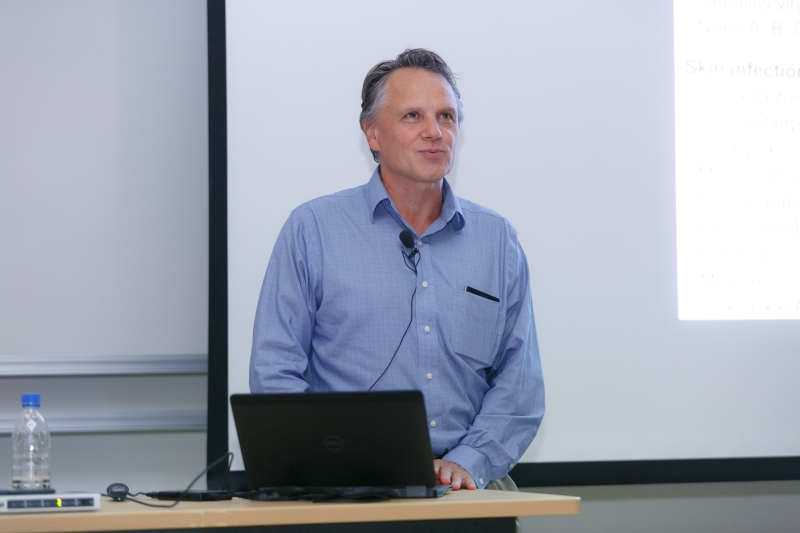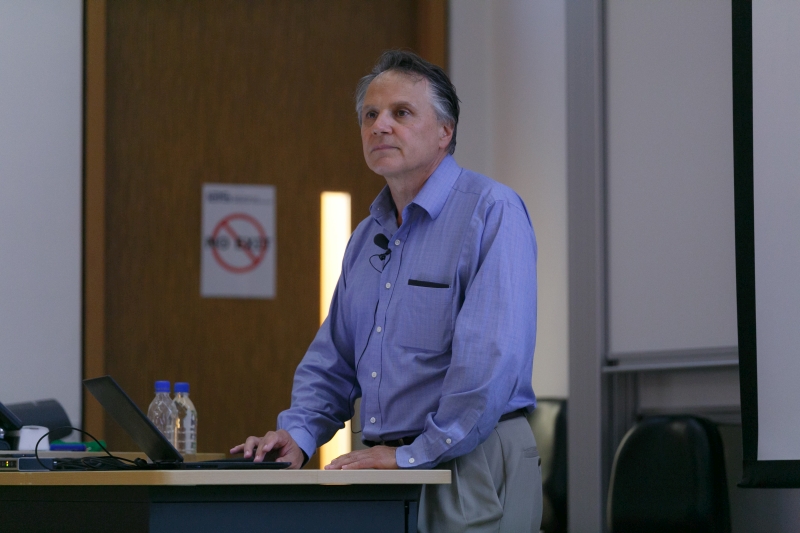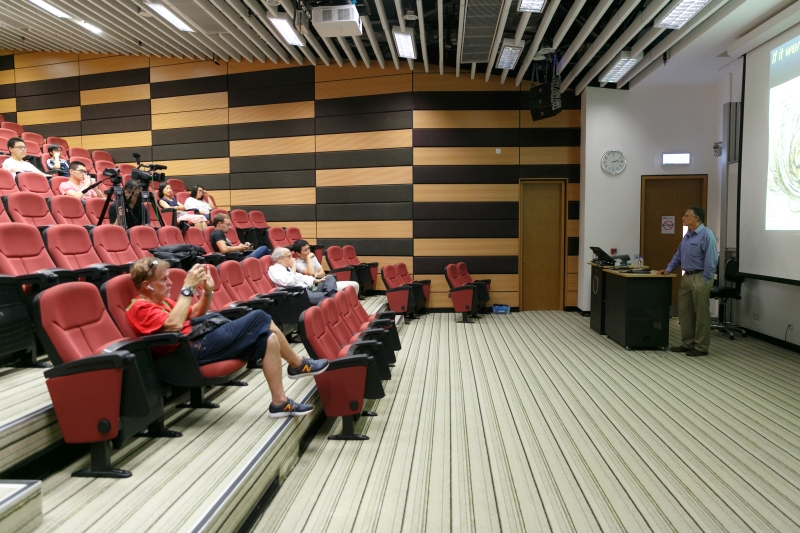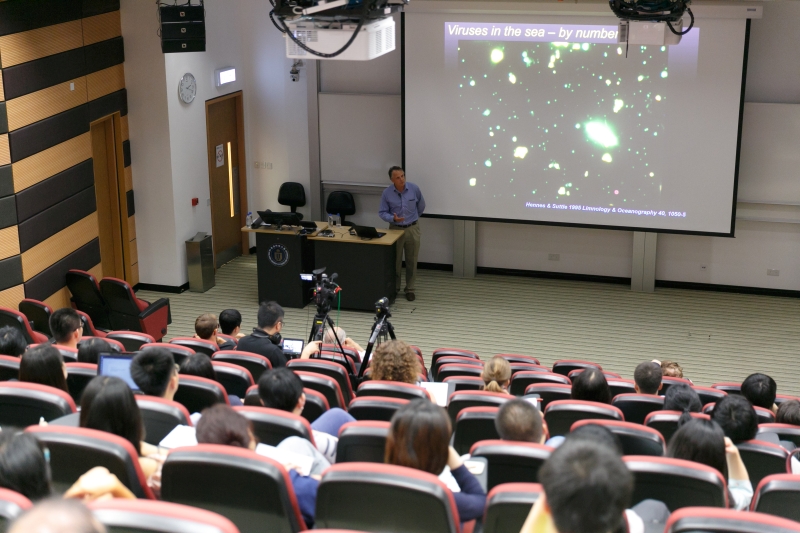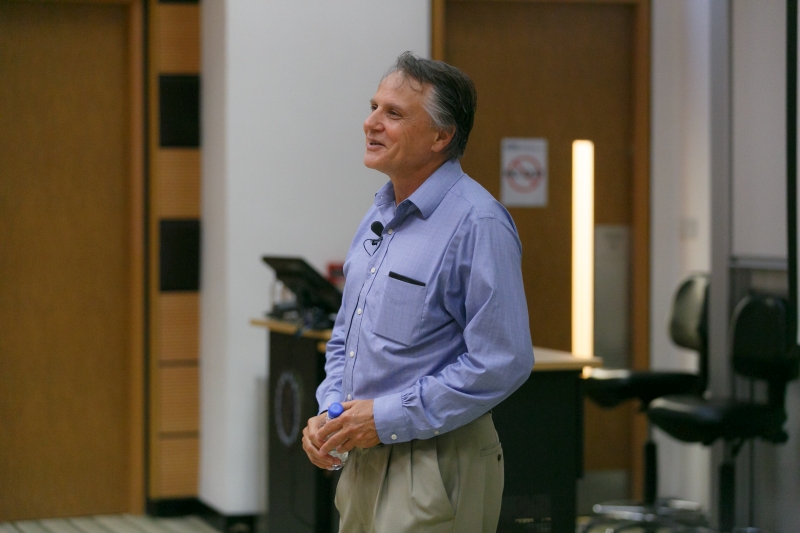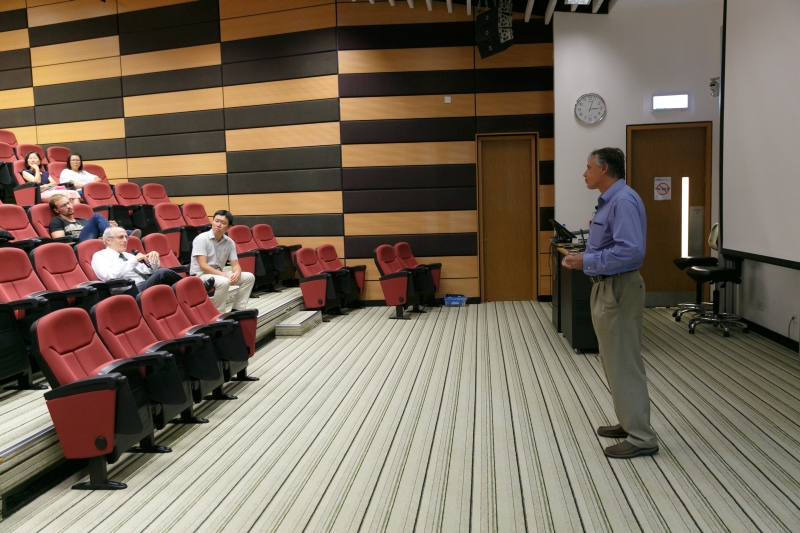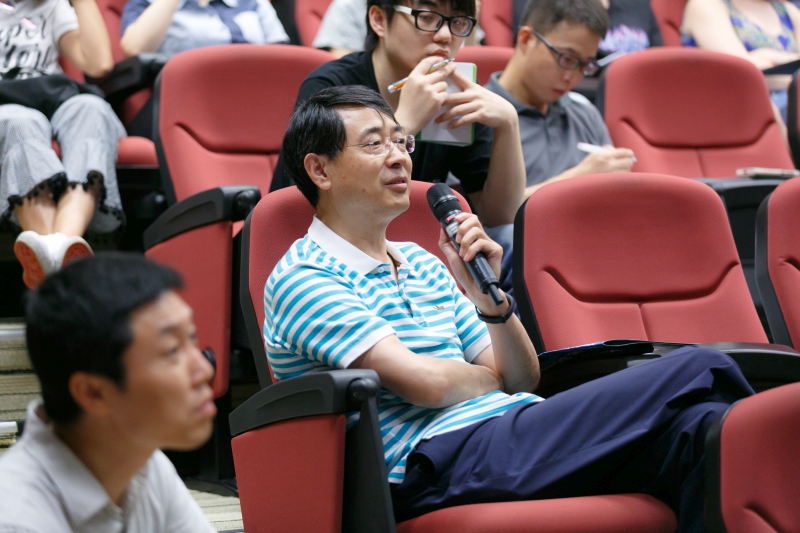Viruses: Nanobiotic Sculptors of the Planet
Abstract
Viruses have likely been on the planet for as long as life itself. They have played major roles in evolution, lubricate chemical cycling on Earth, and control the composition of communities. If it were not for viruses, life as we know it would not have arisen, and if viruses went extinct, much of the life we are familiar with would also probably cease to exist.
About the speaker
Prof. Curtis Suttle holds a BSc (hons) degree in Zoology and a PhD in Botany, from the University of British Columbia (UBC). He held positions as the Coastal Marine Scholar at the State University of New York at Stony Brook and an Associate Professor at the University of Texas at Austin, before returning to UBC, where he is currently Professor of Earth, Ocean and Atmospheric Sciences; of Microbiology and Immunology; and of Botany.
Prof. Suttle is one of the World's leading marine virologists. His research and contributions cross over many fields, including biological oceanography, environmental microbiology, microbial ecology, virology and phycology. He has authored over 100 scientific papers, and has published in many of the most highly ranked journals including Nature, Science and Proceedings of the National Academy of Sciences.
Prof. Suttle is a Fellow of the Royal Society of Canada, a Fellow of the Canadian Institute for Advanced Research, and recipient of the A.G. Huntsman Award for Excellence in Marine Science. He has been an active member of numerous scientific societies and has held elected offices in the American Society of Microbiology, the American Society of Limnology and Oceanography, and the International Committee on the Taxonomy of Viruses. He has had editorial responsibilities for Limnology and Oceanography, Aquatic Microbial Ecology, Environmental Microbiology and Microbial Ecology.

